This week’s theme from That Artsy Reader Girl’s Top Ten Tuesday prompts is about the oldest books on your TBR: not the ones you’ve had the longest, but the ones which were published longest ago.
Mine’s not going to be 100% reflective of the oldest books I’m likely to read, because I only put books on my TBR on StoryGraph if I own them, and I’m likely to read old books through Serial Reader/Project Gutenberg and the library, on a whim, rather than add them to my backlog. A few years ago there’d have been a lot of works from, like, the 1500s or something, but that’s not really my field now and I read all the texts I was interested in back then. Sooo given my predilection for classic mysteries, my guess is that this entire list is going to be taken up with those…
Here we go; let’s see if I’m right!
- Mr Pottermack’s Oversight, by R. Austin Freeman (1931). This is a classic mystery, reissued recently by the British Library Crime Classics series. I want to get around to it soon, because I rather liked Freeman’s The Eye of Osiris.
- The Floating Admiral, by the Detection Club (1931). Also a classic mystery, this one written collaboratively by fourteen members of the famous Detection Club, a group of classic crime writers (which still exists today). The group includes Agatha Christie and Dorothy L. Sayers, so I’m definitely curious to read this one. It’s a bit gimmicky, though, so it’s not at the top of my list. I suspect it’ll be a bit of a mix in terms of quality/style.
- Malice Aforethought, by Francis Iles (1931). I have a couple of others books by Iles/Anthony Berkeley hanging out among the oldest on my TBR, including Before the Fact (1932) and Jumping Jenny (1933). His books are huge classics of the genre and very influential, and I’ve really enjoyed some of them. That said, Iles/Berkeley could be rather misogynistic, and I haven’t felt like risking it yet with the ones that remain. It requires a certain mood and willingness to put up with it.
- Death at Breakfast, by John Rhode (1935). John Rhode’s mysteries are always solid, workmanlike and enjoyable. They don’t generally have characters with huge personalities (even his series detective, Priestley, doesn’t really stand out in the way that, say, Christie’s Poirot does), and you basically know what you’re getting into, making them excellent comfort reading. I’ve been holding onto Death at Breakfast for the right moment for a while.
- Murder in the Bookshop, by Carolyn Wells (1936). I really should get to this one, because I do love murder mysteries set in and around bookshops, libraries, museums, etc. I know very little about it or the author, as I don’t think I’ve read any of her other works.
- Antidote to Venom, by Freeman Wills Crofts (1938). Crofts was really prolific, but I find his work kind of… unmemorable? And a little slow. Still, this one is in the British Library Crime Classics series, and I do want to get round to it.
- Rocket to the Morgue, by Anthony Boucher (1942). This stands out from the group by being an American classic, and thus out of my usual wheelhouse. I spotted it in a local indie bookshop recently, though, and was curious about the title/cover. Once I read that it was based on Boucher’s experience of being a pulp sci-fi writer, the collision of genres I love made it seem like an excellent choice!
- Death Knows No Calendar, by John Bude (1942). Bude is another of those classic mystery writers who will generally always write something solid and entertaining, without flair. You know what you’re getting into, and therein lies the pleasure.
- The Sunday Pigeon Murders, by Craig Rice (1942). About this author and book I know virtually nothing; I got it as part of an “advent calendar” of classic mysteries, and haven’t got round to it yet.
- Dramatic Murder, by Elizabeth Anthony (1948). This one’s a Christmas mystery, so I’m saving it for December — I actually only just got it last month, from my British Library Crime Classics subscription. As far as I know, the author is new to me, so I’m quite curious.
Aaand as predicted, it’s classic crime all the way down! I hadn’t realised I had so many hanging around unread, I’ll be honest. I tend to hoard them away from myself “for when I need them”, and then forget I have ’em stashed waiting for their moment.
Now might well be their moment, given my reading slump — where’s that copy of Death at Breakfast? When we move, I swear I’m designing the room layouts to include at least two entire floor-to-ceiling bookshelves for my classic crime collection, so I can keep them all in the same place…
Very curious to see everyone else’s lists!
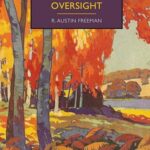
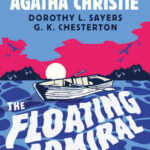

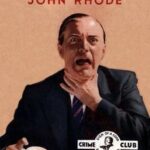
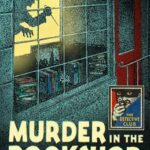
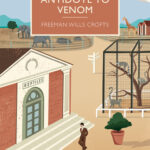
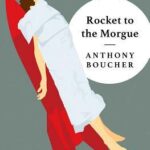
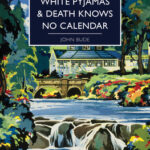



I love your list, and several of these authors are on my BR. Your #2 is on my Classics Club TBR, so I should get to it fairly soon.
Here is mine: https://wordsandpeace.com/2024/11/19/the-top-10-oldest-books-on-my-tbr/
Ah, cool! It’s a fascinating book format.
I hope you enjoy all of this classic crime.
Here’s hoping! I usually find it of “academic” interest even if I don’t think it’s well-written. 😀
I haven’t read any of these books either, but they sound interesting, especially Murder in the Bookshop. I hope you’ll love them when you read them 🙂
If you’d like to visit, here’s my TTT: https://thebooklorefairy.blogspot.com/2024/11/top-ten-tuesday-oldest-books-on-my-tbr.html
I always have fun with classic mysteries, even if they’re not very well written — I’m fascinated with the whole genre. 😀
I love that you ended up (somewhat unintentionally) having all classic crime on your list! Murder in the Bookshop sounds like a lot of fun—I love books set in bookstores, too.
Sadly (I’ve read it now) it wasn’t so great, but it was still interesting to give it a shot.
I think if one is going to read any Anthony Berkeley at all (which, generally, no thank you), Malice Aforethought is probably the one to read? I don’t think it’s representative (well, maybe of the misogyny…) but I feel like it might be the most influential. So you can read it and say that now you are done with him forever, haha.
My own TBR is getting increasingly full of quite old books that are now on Gutenberg and Open Library and were much harder to get before. And of course OL has helped digitise a significant chunk of the Wellcome Library so I’ve gone a little mad with the wealth of the most eclectic possible texts.
I could, but I do have an academic interest in his stuff, even if it’s difficult to enjoy in the traditional sense…
The Floating Admiral sounds like an interesting concept!
Doesn’t it?! I’m curious what they made of it.
I love this list, but I’m curious how you have so many classic mysteries and no Agatha Christie in sight.
Pam @ Read! Bake! Create!
https://readbakecreate.com/oldest-books-on-my-tbr-ten-oldest-books-i-own/
I’m surprised you missed #2, which Christie is included in. 🙂 And the fact that I mentioned Christie in #4 as well. You can imagine that being a fan of classic mysteries, I’ve read quite a lot of Christie… But, this might be more surprising, not all fans of classic mysteries actually like Christie’s work. I only think it’s okay.
I love mysteries and thrillers, but I actually haven’t read much classic crime fiction. I have been working (VERY slowly) through Agatha Christie’s books over the last few years and that has been fun. I hope you enjoy all these when you get to them!
Happy TTT (on a Wednesday)!
Susan
http://www.blogginboutbooks.com
I studied classic mysteries for a module during my first degree, and got bitten by the enthusiasm, hehe. 🙂
Fun list! I love that it has an internal theme as well as meeting the criteria of the Top Ten Tuesday topic.
It was unintentional, but in retrospect… not too surprising, haha.